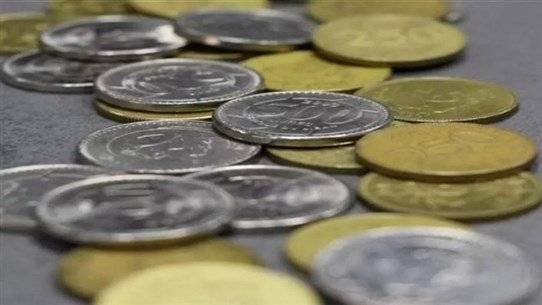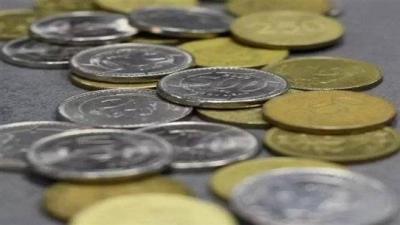The 500 and 250 lira are sold as scrap in Lebanon, representing the latest trade pursued by Lebanese individuals. A kilo of "nickel" is priced at 20 fresh dollars, which has led many to enter the scrap trade involving the 500 lira notes, earning them a net profit of 300 to 400 thousand lira per kilo. In Lebanon, known for its wonders and oddities, people often remark, "They have lost all value," "They can't buy anything," and "What can you still get with 500 lira? Its value is gone."
Abu Mohammed has joined the business of selling "nickel," taking advantage of citizens discarding their 500 and 250 lira notes in drawers. He decided to collect them and sell them in the scrap market, wondering, "Why not? It's profitable." Few know that the 500 and 250 lira coins are made of "nickel," which is sold as scrap, but the crisis has opened the eyes of citizens to every opportunity to benefit from fresh dollars.
With the collapse of the Lebanese currency, the 500 and 250 lira have disappeared in value after losing their worth amidst rising prices, dropping to as low as 3000 lira. This prompted many to sell them as "nickel" to scrap shops, which is more profitable, according to many who began collecting them from the markets at their official price and selling them by the kilo in scrap shops. The kilo now reaches 20 dollars, encouraging some to enter the "500" trade, a new business that has recently resurfaced, reminiscent of the 1990s, albeit with the difference that back then, families sold lira and 5 lira coins after losing their value. History is repeating itself with the 500 and 250 lira, which Ali carries periodically to sell in the scrap market, earning 300 to 400 thousand lira per kilo. The motivation for this is twofold: the profitability of "nickel" and taking advantage of the lira's depreciation.
Lebanese ingenuity shines in crafting solutions to their crises, proving adept at finding profit opportunities from the depths of adversity. Abu Wissam, the owner of one of the scrap shops, notes a significant demand for "nickel" lately, especially among unemployed youth seeking opportunities amid crippling poverty. He confirms that today, a kilo is sold for 20 dollars, subject to fluctuations in the price market.
Just as with nylon, plastic, and tin, "nickel" has entered the scrap trade, with advertisements surfacing on social media encouraging the purchase of discarded currency to collect and resell later. Hussein, a young man in his twenties, started gathering 500 lira notes from the market after they lost their value and became disregarded by people. He thought of benefiting from them, buying them at their face value in paper currency. "This way, I gather a sum; sometimes I sell around 15 million a month, an opportunity for a job from nothing."
The 500 lira has disappeared from circulation; even a cup of morning coffee now costs over 4000 lira, according to shopkeeper Imad. He collects the 500 and 250 lira notes and gives them to young buyers, stating that people are eager to get rid of them, just as they did with lira coins and 5 lira denominations back in the day. "They can't buy anything," he says, laughing to himself about the state of affairs, yet he is surprised by the youth's eagerness to buy them.
Even the Lebanese currency has entered the scrap market, clearly indicating the magnitude of the collapse affecting the country. It's not surprising if we reach a point where not only the 500 lira notes are sold as scrap but Lebanese paper currency as well; in Lebanon, anything is possible.




